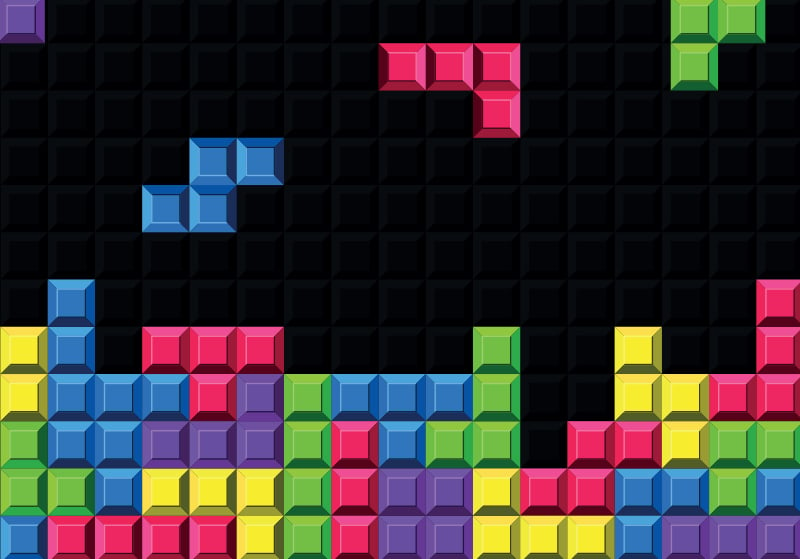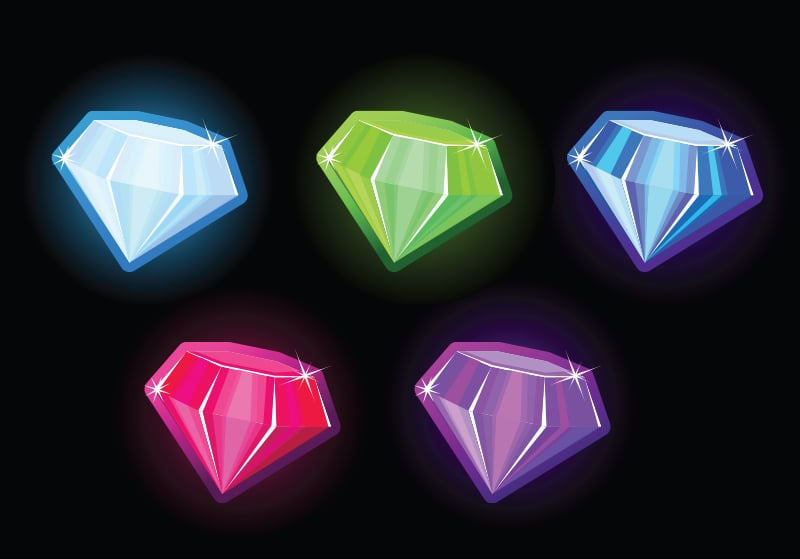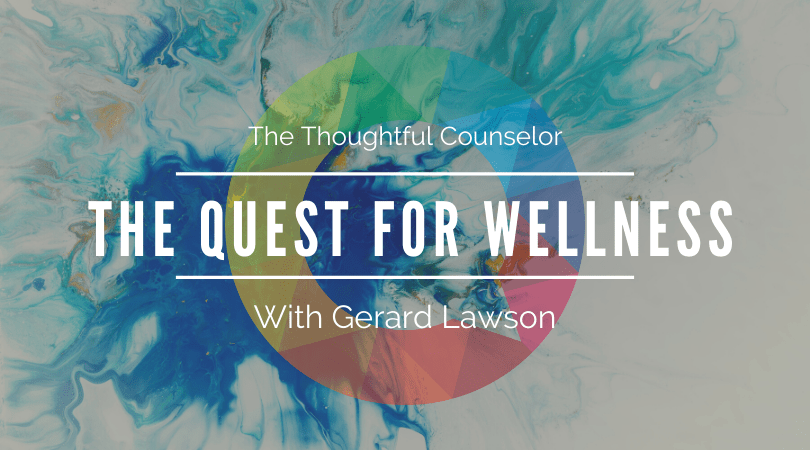1. WHAT GAMES HELP RELIEVE ANXIETY AND STRESS?
Here’s a list of some popular games that are also in the spotlight of emerging research.

1) TETRIS | Tetris involves rotating geometrical shapes to fit each other with varying levels of difficulty. A study by Kyla Rankin, Lisa C. Walsh, and Kate Sweeny from UC Riverside highlights Tetris as a flow-inducing activity and a better distraction during uncertain waiting periods. Additionally, there’s a growing body of research on how Tetris may play a role in reducing Post-Traumatic Stress Disorder symptoms like flashbacks and intrusive thoughts.

2) BEJEWELED II | Bejeweled II is a captivating, colorful game of matching strings of jewels. Researchers Carmen V. Russoniello, Kevin O’Brien, and Jennifer M. Parks look at electroencephalographic (EEG) brain wave activity and heart rate activity of Bejeweled II players in the Annual Review of Cybertherapy and Telemedicine. The results are statistically significant in the world of research, even if the difference in results is subtle when comparing the control group who completed a 20-minute internet activity to the Bejeweled II players.

3) PERSONAL ZEN | With over ten years of clinical research, psychologist Dr. Tracy Dennis-Tiwary and co-founder Raj Amin back Personal Zen. Personal Zen uses the science of Attention Bias Modification Training (ABMT) to help reduce stress by training the brain to notice and attend to positivity over negativity. This game offers a highly personalized plan by analyzing the player’s mood after several plays and leads the player to consistently focus on a cheerful face, known in the game as a “sprite.”

4) SUPERBETTER | Jane McGonigal, an influential female video game designer, designed SuperBetter to aid in her recovery from a concussion. Now, SuperBetter focuses on youth resilience, social-emotional learning, and mental health. The stress-relief game lets players choose their own adventure as they pick quests incorporating four areas of health (physical, mental, emotional, and social). For example, one task to “activate compassion” includes verbally pointing out a similarity between a stranger and the player, like wearing the same socks.

5) HEADSPACE & CALM | Apps like Headspace and Calm are a more direct approach to anxiety-relief games. These apps guide the user through game-like meditations and breathing exercises. The screen uses visually stimulating animations to assist in deep breathing and guided meditations to introduce mindfulness to users. They do require paid subscriptions to enjoy the full scope of the app, but both offer free trials before commitment as well as the option to gift a subscription.
2. WHY DO GAMES HELP RELIEVE STRESS AND ANXIETY?
So, scientifically, researchers look at a factor called a state of flow or flow-inducing activities. Mihaly Csikszentmihalyi named and recognized the concept first. The state of flow refers to the energetic focus between an individual and the task they are completing. Flow-inducing activities include exercising, meditating, and other mindful activities like gardening or painting. There are benefits to the psychology of flow, like helping out with creativity and emotional regulation.
Depending on the game, there are also different incentives to help tackle feelings of anxiety and stress. In some anxiety relief games, there are achievement-based tasks and in others there are problem-solving tasks. Both provide the player with a sense of control over their actions and temporary alleviation of their worries. The most important takeaway is playing a game that helps put the player in a flow state.
To learn more about evidence-based approaches to digital therapy and mental health apps, consider a certificate in digital mental health with leading professionals of CONCEPT, Continuing & Professional Studies at Palo Alto University.























